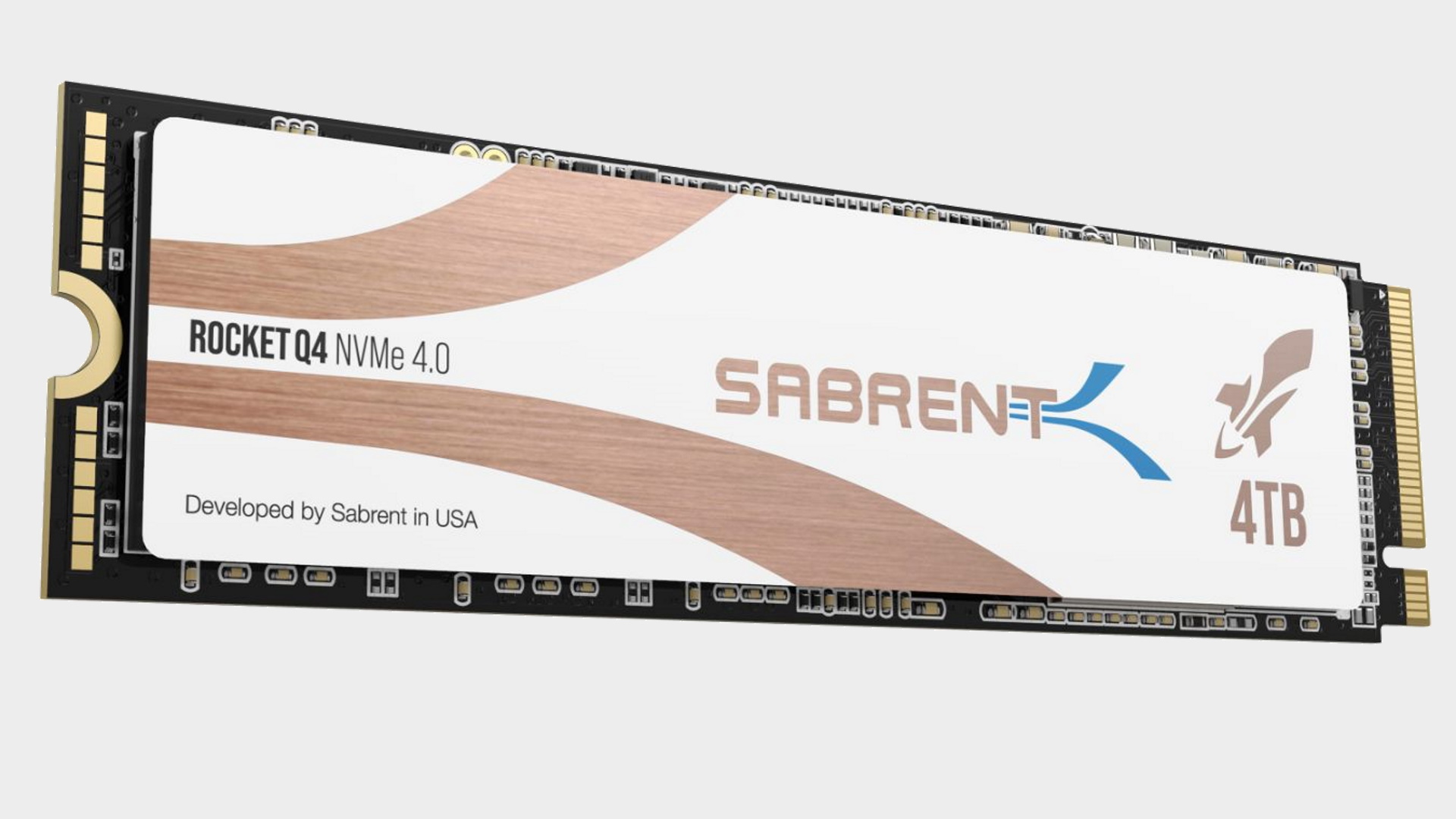Our Verdict
The Sabrent Rocket Q4 has the capacity to spare, but can't hit the performance heights of the best PCIe 4.0 SSDs.
For
- Impressive capacity
- Caches keep throughput speedy
- Great value for money
Against
- Still not exactly cheap
- Second-gen PCIe 4.0 is much faster
PC Gamer's got your back
Sabrent's impact on next-gen storage has been as impressive as it has been varied. Its first generation of PCIe 4.0 drives were good enough to feature in our best NVMe SSD guide and its Rocket 4 Plus has had an impressive stab at doing the same with the very latest controllers and tech. If it wasn't for Western Digital's incredible WD_Black SN850 it would have been the goto manufacturer there as well.
Model: SB-RKTQ4-4TB
Capacity: 4,000GB
Interface: PCIe Gen 4 x4
Controller: Phison E16
NAND: Micron 96L QLC
Rated seq. read: 4,900MB/s
Rated seq. write: 3,500MB/s
Endurance: 800 TBW
Warranty: 5 years
Price: $699 (£649)
The only problem with the latest PCIe 4.0 drives is they're more expensive than the first generation PCIe 4.0 offerings and considerably more than PCIe 3.0 SSDs. This means that if you're looking for serious SSD capacities, then you're looking at the kind of money that will buy you a whole gaming PC. The aforementioned Rocket 4 Plus is available in sizes up to 4TB, but that super speedy storage will cost you a cool $999. Yeah quite.
Against that backdrop, the Sabrent Rocket Q4 rolling in at $699 for a 4TB SSD is an enticing option. It supports the faster transfers of the PCIe 4.0 interface, and while it can't quite match the raw sequential throughput of the very latest drives, it's notably faster than the PCIe 3.0 limits of 3,500MB/s, with the promise of sequential reads of 4,900MB/s.
If you need a big fast drive, this should probably be on what is essentially quite a small shortlist. The only other drive we've had this big in the PC Gamer labs is also from Sabrent, the Rocket Q 4TB, which is a PCIe 3.0 drive. The likes of the WD SN750 and Corsair MP600 are also available in such chunky sizes, although again these are PCIe 3.0 devices, and generally roll in at the same kind of price point.
So essentially, the big selling point for the Rocket Q4 is its impressive capacity and PCIe 4.0 performance at a price point that generally nets you a PCIe 3.0 drive. For your cash, you get a QLC drive with overprovisioning and a RAM cache to keep things running smoothly, and the option of adding a heatsink to your purchase for an extra $20—useful if your motherboard doesn't come with some form of cooling as standard.
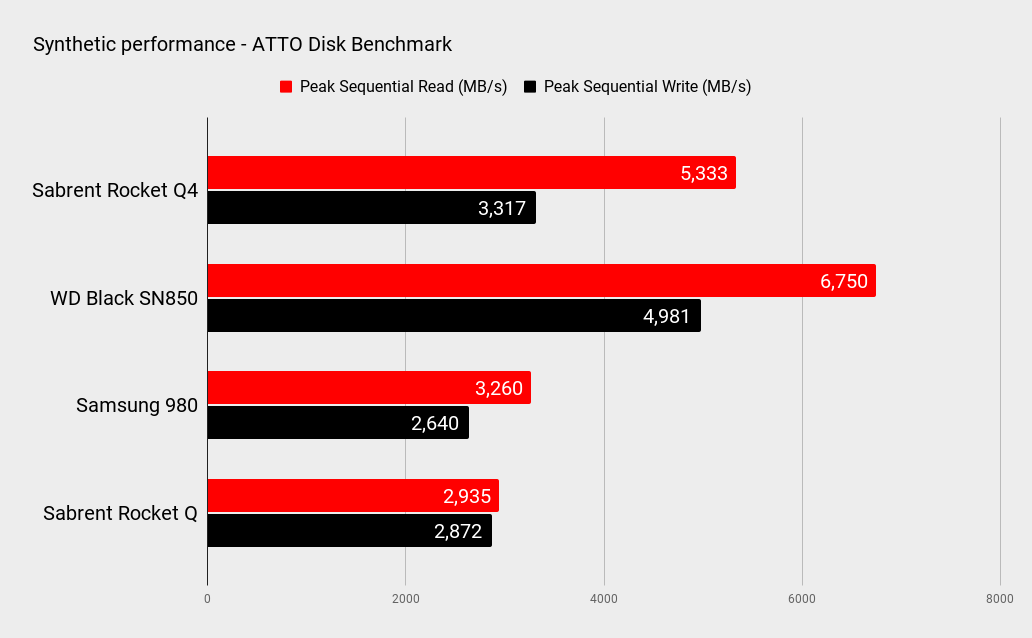
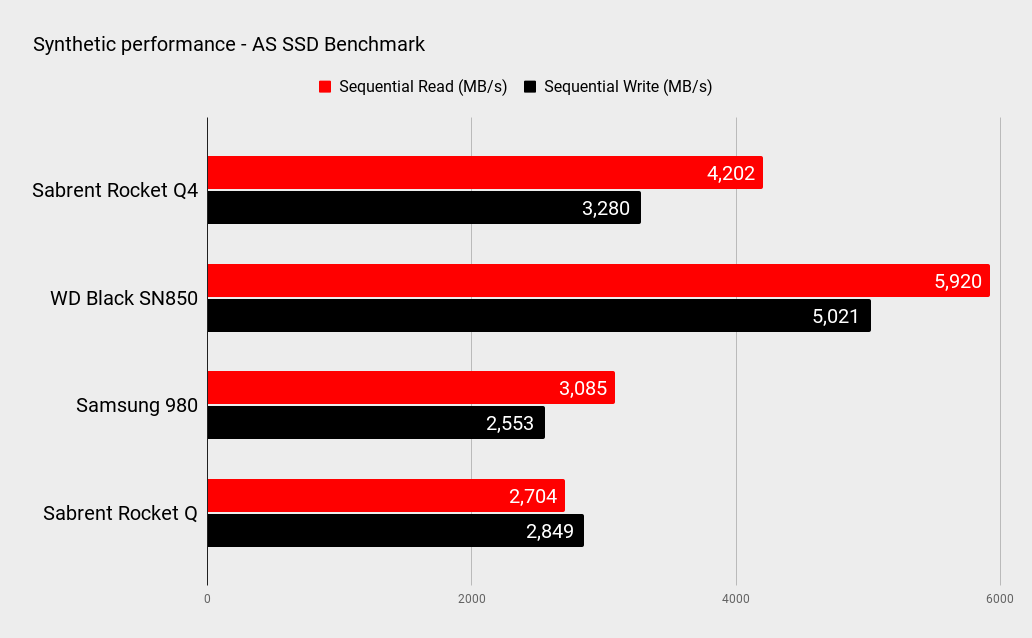
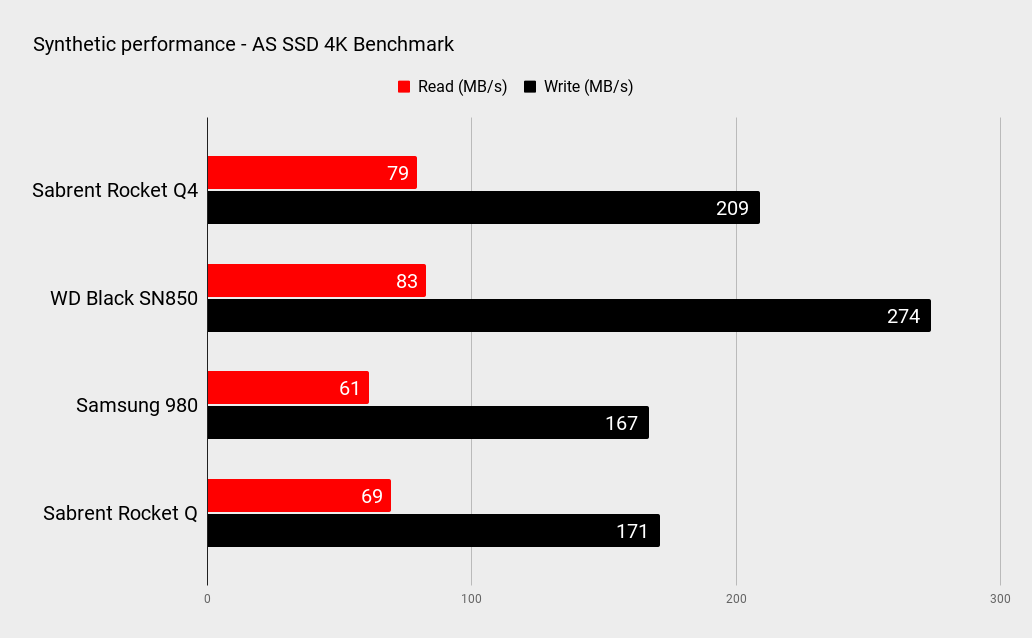
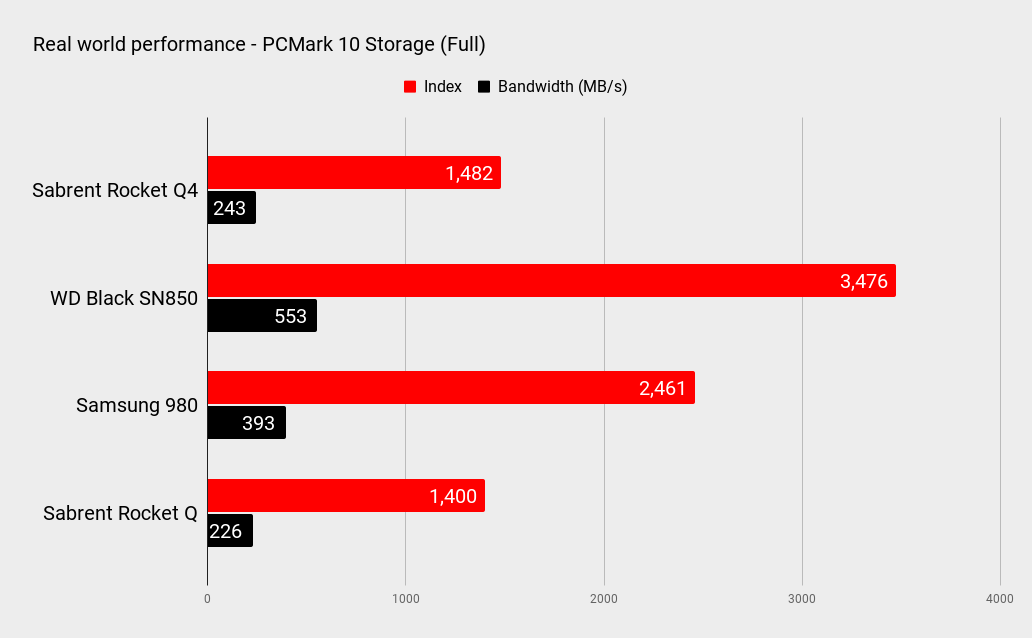
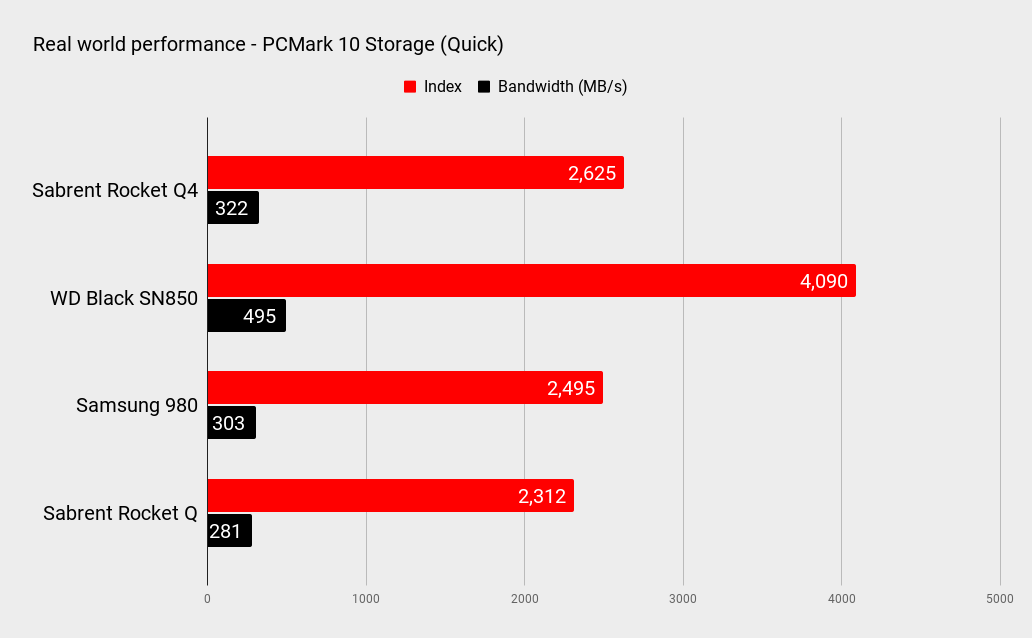
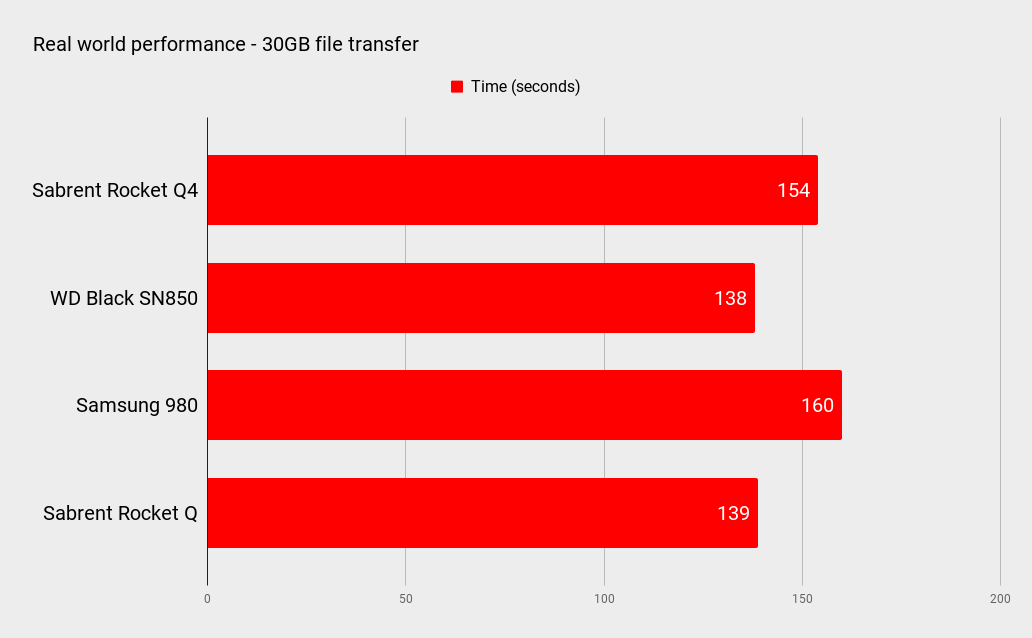
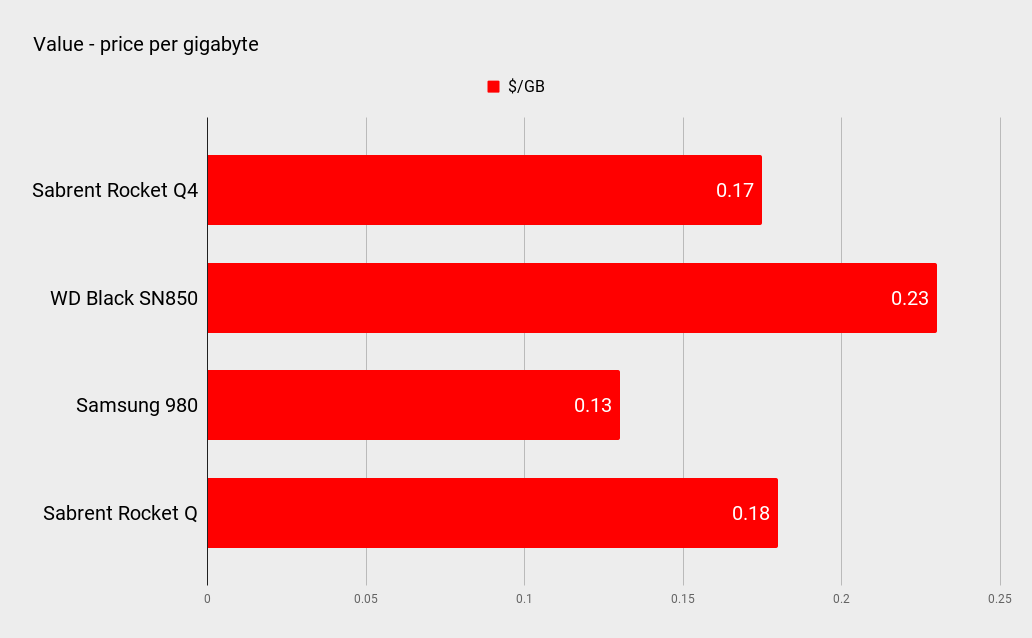
When it comes to synthetic performance, the Rocket Q4 is a bit off the pace of the first-gen PCIe 4.0 drives, which is to be expected from a QLC-based SSD, but ahead of the PCIe 3.0 drives. This Phison E16 controller is capable of 4GB/s writes when paired with TLC memory, but here you're looking at more like 3.3GB/s, and that's the best-case scenario of sequential throughput.
The read performance is a better story, and in the synthetic tests at least, this drive performs better than many of the PCIe 3.0 SSDs. Even in the demanding 4K read and write tests in the AS SSD benchmark, there's a clear uplift in throughput compared to PCIe 3.0 drives.
It's in the real world performance that the write deficit of QLC flash shows itself most though, and copying the 30GB Steam game install takes 18 seconds longer than the Sabrent Rocket 4. The PCMark10 full storage test backed up this unimpressive write performance, with the Rocket Q4 struggling to separate itself from the likes of the Samsung 980, which is a PCIe 3.0 drive.
It's the same story in Final Fantasy XIV, where the Sabrent drive puts in one of the slowest performances we've seen, taking over 12.5 seconds to load all five scenes. That's slower than most of the PCIe 3.0 drives we've seen, and even SATA drives offer the same kind of performance—this isn't really a drive you want to use for your main game storage.
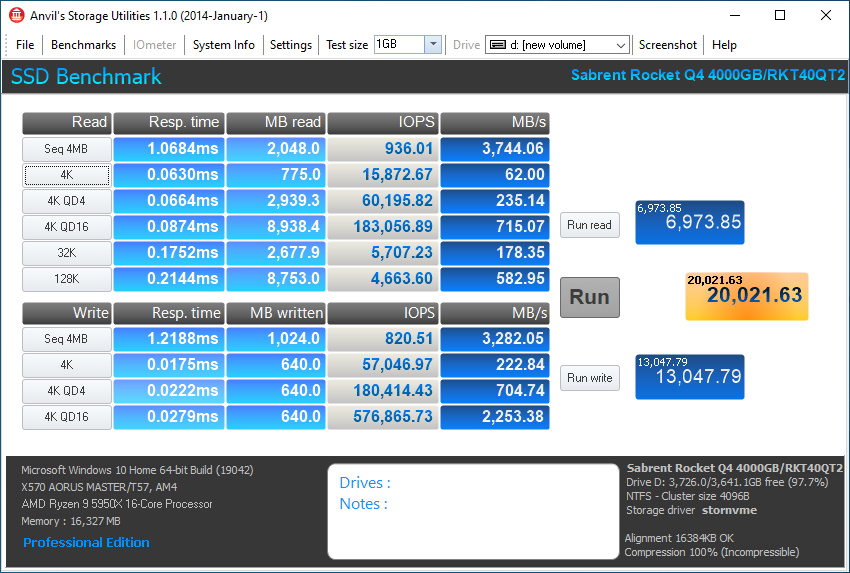
While the performance is somewhat off the pace then, that doesn't put too much of a dent in the fact this is still a lot of SSD for your money. In terms of price per gigabyte, this is the cheapest PCIe 4.0 drive you can buy right now, rolling in as it does at $0.17 per GB.
It still represents a significant outlay at $699, so it's not exactly cheap. Better value PCIe 3.0 SSDs can be had for even less, but as the capacities rise, so does the price.
Overall, the slightly sluggish writes (at least compared to other PCIe 4.0 drives) and unimpressive real-world performance holds this back from being a must buy. It still represents great value for money, and if you need a lot of space, you'll do well to find any SSD that performs as well for the cash. Unfortunately, if you need a lot of seriously fast space, you're going to need to spend a lot more than this.
The Sabrent Rocket Q4 has the capacity to spare, but can't hit the performance heights of the best PCIe 4.0 SSDs.
Alan has been writing about PC tech since before 3D graphics cards existed, and still vividly recalls having to fight with MS-DOS just to get games to load. He fondly remembers the killer combo of a Matrox Millenium and 3dfx Voodoo, and seeing Lara Croft in 3D for the first time. He's very glad hardware has advanced as much as it has though, and is particularly happy when putting the latest M.2 NVMe SSDs, AMD processors, and laptops through their paces. He has a long-lasting Magic: The Gathering obsession but limits this to MTG Arena these days.
